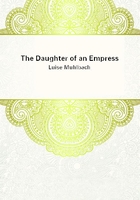
第61章 SCENES AND PORTRAITS(1)
Years passed--famous and glorious years for Russia. Peace within her borders, and splendid victories gained over foreign enemies, particularly over the Prussians. In songs of jubilee the people praised and blessed their empress, whose wisdom had brought all to such a glorious conclusion, and had made her country great, triumphant, and happy.
The good Elizabeth! What had she to do with the victories of her soldiers, with the happiness of her realm? She knew nothing of it, and if peace prevailed throughout the Russian empire, it was absolutely unknown in the imperial palace, where there was eternal war, a never-ending feud! There the young Catharine contended with her husband, whom she hated and abhorred; with Elizabeth, who saw in her a dangerous rival. But it was an unequal struggle in which these two women were engaged, for Elizabeth had on her side the power and dominion, while Catharine had only her youth, her beauty, and her tears!
Elizabeth hated Catharine because she dared to remain young and handsome, while she, the empress, saw that she was growing old, and her charms were withering; and Catharine hated Elizabeth because the latter denied her a right which the empress daily claimed for herself --the right to choose a lover, and to love him as long as he pleased her. She hated Elizabeth because the latter surrounded her with spies and watchers, and required of her a strict virtue, a never-violated matrimonial fidelity--fidelity to the husband who so far derided and insulted his wife as to demand that she should receive into her circle and treat with respect and kindness his own mistress, the Countess Woronzow--fidelity to this husband, who had never shown her any thing but contempt and neglect, and who had no other way of entertaining her than teaching her to march in military fashion, and stand as a sentinel at his door!
Wounded in her inmost being and her feminine honor, tired of the eternal pin-prickings with which Elizabeth tormented her, Catharine retreated into her most retired apartment, there in quiet to reflect upon her dishonorable greatness, and yearningly to dream of a splendid future. "For the future," said she, with sparkling eyes to her confidante, Princess Daschkow, "the future is mine, they cannot deprive me of it. For that I labor and think and study. Ah, when /my/future shall have become the present, then will I encircle my brows with a splendid imperial diadem, and astonish you with all my greatness and magnificence.""But you forget your husband!" smilingly interposed Princess Daschkow.
"He will a little obscure the splendor of your imperial crown, as he will always be the first in the realm. He is the all-powerful emperor, and you will be powerless, although an empress!"Catharine proudly tossed her head, and her eyes flashed.
"I shall one day remember all the mortifications he has inflicted upon me," said she, "and an hour will come when I shall have a reckoning with him, and full retribution! Ah, talk not to me of my husband--Russian emperors have never been immortal, and why should he be so?""Catharine!" exclaimed the Princess Daschkow, turning pale, "you cannot think--""I think," interposed Catharine, with an unnatural smile, "I think the Russian emperors are not immortal, and that this good Empress Elizabeth is very fortunate in having no emperor who presumes to stand over her and have a will more potent than her own!""Ah, Elizabeth has no will at all!" laughingly responded the princess.
"But I shall have a will!" said Catharine, proudly.
The Princess Daschkow had spoken the truth. Elizabeth had no longer any will; she let Bestuscheff govern, and was herself ruled by Alexis Razumovsky, the field-marshal, her husband. She did whatever these two required, willingly yielding to them in all cases demanding no personal effort on her part. On this point only had she a will of her own, which she carried through with an iron hand.
"I have not become empress that I might labor, but that I might amuse myself," said she. "I have not set the crown upon my head for the purpose of governing, but for the purpose of enjoying life. Spare me, therefore, the labor of signing your documents. I will sign nothing more, for my hand is not accustomed to holding the pen, and the ink soils my fingers, which is unworthy of an empress!""It is only one signature that I implore of you to-day," said Bestuscheff, handing her a letter. "Have the great kindness to make an exception of this one single case, by signing this letter to King Louis XV. of France.""What have I to write to this King of France?" fretfully asked Elizabeth. "Why should I do it? It is a long time since he has sent me any new dresses, although he might well know that nothing is more important for an empress than a splendid and varied wardrobe! Why, then, should I write to this King of France?""You majesty, it is here question of a simple act of courtesy," said Bestuscheff, pressingly; "an act the omission of which may be attended with the most disagreeable consequences, perhaps indeed involve us in a war. Think of the peace of your realm, the welfare of your people, and sign this letter!""But what does it contain that is so important?" asked the empress, with astonishment. "I now remember that for a year past you have been importuning me about this!""Yes, your majesty, I have been for the last three years daily imploring of you this signature, and you have refused it to me; and yet the letter is so necessary! It is against all propriety not to send it! For it is a letter of congratulation to the King of France, who in an autograph letter announced to you the birth of his grandson.